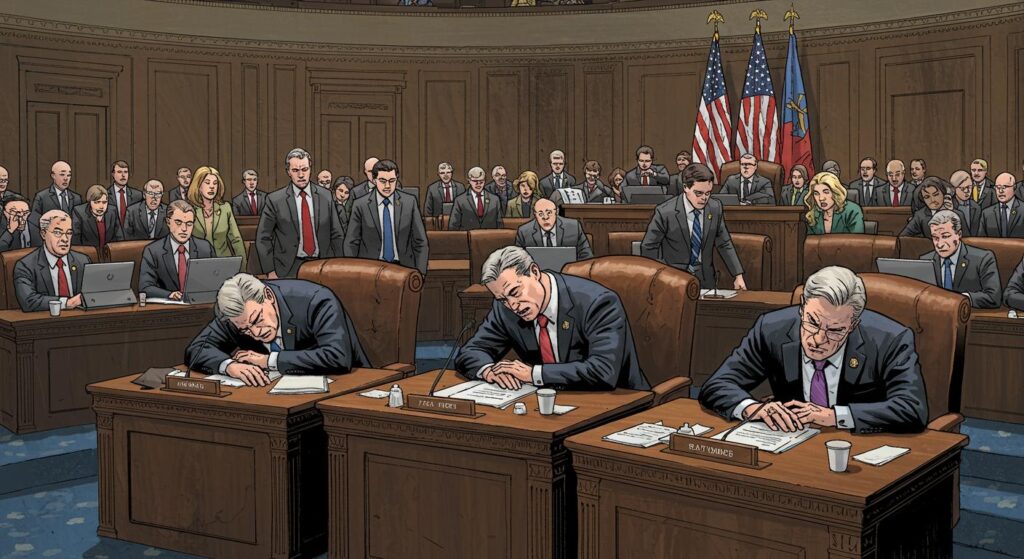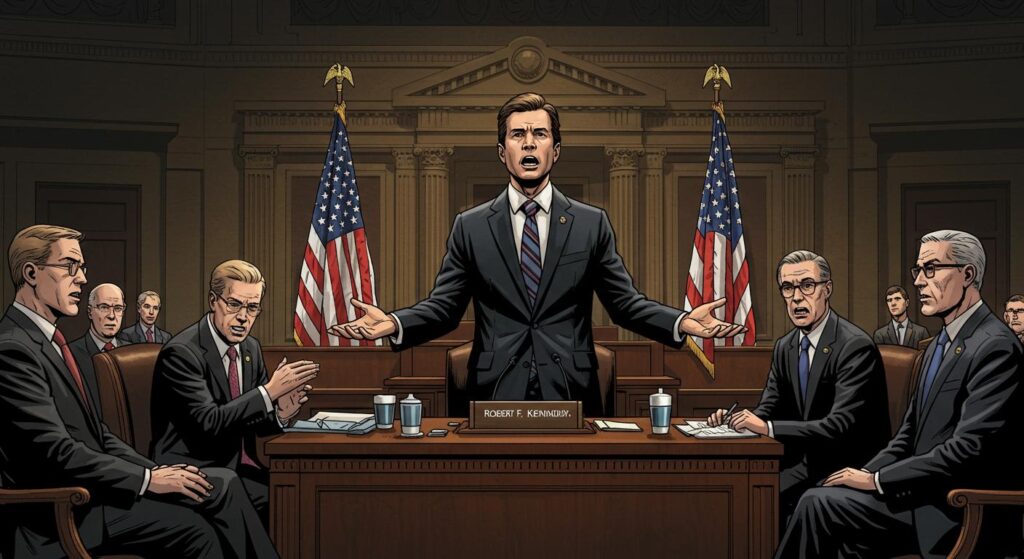Sometimes, local politics delivers a scene so cinematically awkward you can practically hear the sad trombone in the background. On Friday, Newark Mayor Ras Baraka found himself handcuffed, hustled into an unmarked car, and briefly spending time in custody—all the result of a protest that spun from bureaucratic dispute to full-blown spectacle at New Jersey’s latest immigration detention facility.
Civil Disobedience, Clashing Badges, and a Not-So-Open House
Baraka’s arrest capped off a week of public opposition to the new 1,000-bed ICE detention center at Delaney Hall, run by private corrections giant GEO Group, as PBS NewsHour reports. The mayor—a Democrat, currently campaigning to replace outgoing Governor Phil Murphy—argued that Delaney Hall shouldn’t even be open, citing issues with city permits. His protest escalated when he joined a group of New Jersey congressional delegates, who themselves contended they had congressional authority to inspect the facility unannounced.
From there, the details waver between “modern political drama” and “Halt! Who goes there?” routine. Representatives Robert Menendez, LaMonica McIver, and Bonnie Watson Coleman reportedly attempted to enter alongside Baraka; footage reviewed by the Associated Press as cited in PBS NewsHour shows Baraka being refused entry because, as a federal official put it, “you are not a congress member.” Baraka then returned to the public side of the gate. Moments later, according to witnesses quoted in both the Associated Press and Scripps’ WXYZ Detroit, a man in a suit warned him, “They’re talking about coming back to arrest you.” Baraka replied, “I’m not on their property. They can’t come out on the street and arrest me,” only to have several ICE agents, some wearing face coverings, surround and handcuff him minutes later as protesters chanted “Shame!” Accounts from activist Viri Martinez and witness Julie Moreno, collected by PBS NewsHour, described a chaotic scene: “There was yelling and pushing,” followed by the mayor being dragged back through the gate after returning to the public side.
The Arrest: Whose Curb Is It Anyway?
The federal rationale for the arrest, as described by interim U.S. Attorney Alina Habba, was direct: Baraka trespassed, ignored repeated Homeland Security warnings, and “willfully chose to disregard the law,” a point repeated in her statement on X and summarized by SAN. The government’s stance is that civil disobedience becomes trespass the moment you step past the administrative line—sometimes invisible, sometimes distinguished only by the presence of more ICE agents than protest signs.
Curiously, only Baraka was arrested, despite several members of Congress being physically present and involved. Linda Baraka, the mayor’s wife, told Scripps that “They didn’t arrest anyone else. They didn’t ask anyone else to leave. They wanted to make an example out of the mayor.” Julie Moreno of American Families United, cited by PBS NewsHour, also questioned why officers “chose that moment to grab him while he was outside the gates.” Such selectivity raises questions about whether the drama was legal, political, or just the universe’s way of keeping municipal officials on their toes.
Motives, Money, and a 15-Year Contract
Delaney Hall isn’t just any building. As PBS NewsHour details, the facility’s $1 billion, 15-year federal contract with GEO Group makes it a major addition to New Jersey’s immigration infrastructure, and its presence persists despite the state’s ban on private immigration detention centers—legislation Governor Murphy referenced while condemning Baraka’s arrest. Murphy’s statement, quoted in SAN, emphasized his administration’s ongoing effort to ban such centers and defend state law at the federal level. New Jersey Attorney General Matthew J. Platkin, whose office is defending the law barring private detention centers, also criticized the decision to arrest Baraka, as WXYZ Detroit notes, and was keen to distance state or local law enforcement from the incident.
The debate about Delaney Hall’s permit status also marches on. Federal officials assert that all inspections and permits are in order, a claim reiterated in Department of Homeland Security statements cited by PBS NewsHour and Scripps. Baraka and his supporters, however, maintain the facility opened in violation of local ordinances, with Rep. Watson Coleman posting on X that they were conducting a standard oversight visit—something they claim to have done at other detention facilities without issue.
Protest or Political Theater?
Depending on which outlet you read, this was either a principled defense of immigrant and municipal rights or political grandstanding in the midst of a gubernatorial campaign. Scripps and the Associated Press note that the mix of “lawful oversight” versus “trespassing” depends, in the end, on administrative nuance—sometimes the literal width of a sidewalk. Reports from SAN highlight the highly contested interpretations, with right-leaning outlets calling it irresponsible lawbreaking, and others framing it as a stand against federal overreach.
On his release later that evening, Baraka told supporters, as Scripps documents, “The reality is this: I didn’t do anything wrong.” He declined to speak about the case, citing legal advice, but voiced his ongoing support for Newark’s diverse communities and a desire to prevent division.
A Curious Snapshot: Bureaucracy Meets the Barricade
So what’s left after the officials are home and the protest signs are dragged back to HQ? All the ingredients of municipal farce: a mayor arguing with federal agents over the definition of property lines, a billion-dollar detention contract operating under a legal cloud, and congressional representatives negotiating their way out of a guard shack.
At its core, this vignette—detailed in coverage by PBS NewsHour, SAN, and Scripps—underscores just how blurred the boundary can be between legitimate protest, civil disobedience, administrative protocol, and overt political theater. Is the line between protest and trespass always this thin, or was this just New Jersey delivering its signature brand of earnest policy dispute and bureaucratic farce? History suggests the saga is unlikely to end with one mayor’s day in handcuffs—especially if there are still fences, contracts, and paperwork left to argue about.







